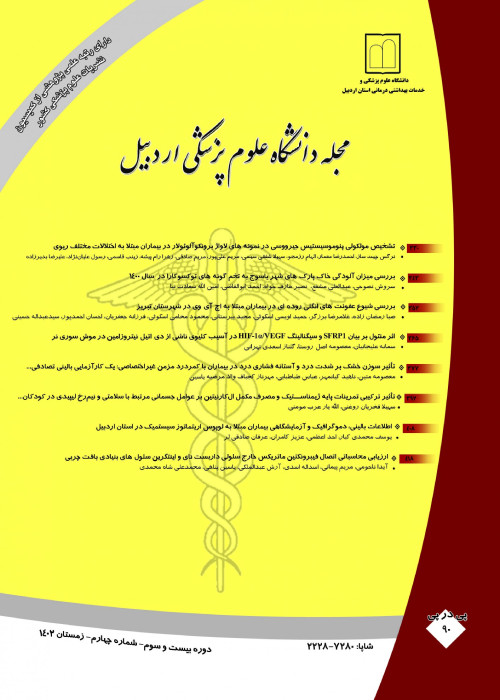Adjuvants and Their Mechanisms of Action
Author(s):
Abstract:
Adjuvants are chemicals، microbial components، or mammalian proteins that enhance the immune response to vaccine antigens. Reducing vaccine-related adverse effects and inducing specific types of immunity has led to the development of numerous new adjuvants. Adjuvants in experimental and commercial vaccines include aluminum salts (alum)، oil emulsions، saponins، immune-stimulating complexes (ISCOMs)، liposomes، microparticles، nonionic block copolymers، derivatized polysaccharides، cytokines، and a wide variety of bacterial derivatives. The mechanisms of action of these diverse compounds are different. Factors influencing the selection of an adjuvant include animal species، specific pathogen، vaccine antigen، route of immunization، and type of immunity needed. In this paper we review the current adjuvant types، structure and mechanism of action and their application in the design and production of animal and human vaccines to provide a source for students and researchers in related fields.
Keywords:
Language:
Persian
Published:
Journal of Ardabil University of Medical Sciences, Volume:12 Issue: 45, 2012
Page:
276
magiran.com/p1063266
دانلود و مطالعه متن این مقاله با یکی از روشهای زیر امکان پذیر است:
اشتراک شخصی
با عضویت و پرداخت آنلاین حق اشتراک یکساله به مبلغ 1,390,000ريال میتوانید 70 عنوان مطلب دانلود کنید!
اشتراک سازمانی
به کتابخانه دانشگاه یا محل کار خود پیشنهاد کنید تا اشتراک سازمانی این پایگاه را برای دسترسی نامحدود همه کاربران به متن مطالب تهیه نمایند!
توجه!
- حق عضویت دریافتی صرف حمایت از نشریات عضو و نگهداری، تکمیل و توسعه مگیران میشود.
- پرداخت حق اشتراک و دانلود مقالات اجازه بازنشر آن در سایر رسانههای چاپی و دیجیتال را به کاربر نمیدهد.
In order to view content subscription is required
Personal subscription
Subscribe magiran.com for 70 € euros via PayPal and download 70 articles during a year.
Organization subscription
Please contact us to subscribe your university or library for unlimited access!


